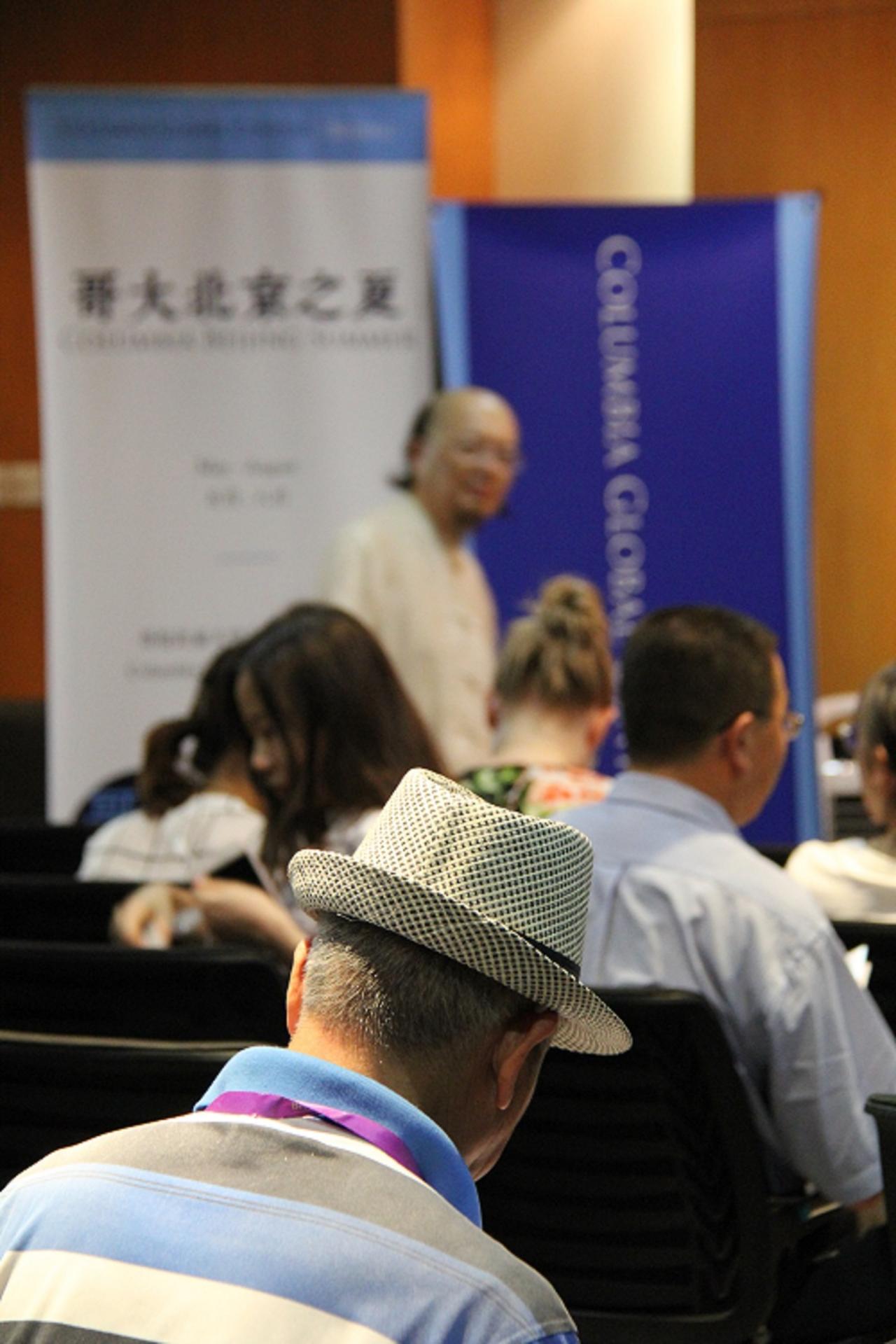My friend once said if only Chinese media wasn’t restricted. Then I asked him: ‘let’s say we were free of control now and you were the big boss of the New York Times, which one would you choose, money or truth?’ He was shocked and said the answer would still be money.”
This was an example raised by Li Tuo, writer and critic, in the panel on “documenting creative labor and the environment in today’s China in an era of global capital.”
On July 2, Columbia Global Centers | Beijing held a day of events on “documenting labor and the environment in today’s China in an era of global capital.” Kiki Tianqi Yu, documentary producer and scholar; WANG Jiuliang, director and award-winning photographer; Lydia H. Liu, the Wun Tsun Tam Professor in the Humanities and Director of Institute for Comparative Literature and Society at Columbia University; LI Tuo, writer and critic; BAO Kun, critic of photography and curator; and QIAN Ying, Assistant Professor at Department of East Asian Languages and Cultures at Columbia University attended the panel. They discussed the living condition of Chinese workers in the context of globalization based on two documentaries: China’s van Goghs and Plastic China.
Professor Qian said that China’s van Goghs reveals the current situation of a group of Chinese oil-painting workers that are completely forgotten in the chain of global capitalism: their dreams, their expectations, and their creative work, although the creativity can only be reflected in strokes of their copies of van Gogh’s paintings. She emphasized that “this documentary embeds its theme in details, for example, the satisfaction of Zhao Xiaoyong, the protagonist, as he signed for his son’s homework and the hesitation when he signed for his own copy reflect the dilemma of workers at the bottom”. Besides, the contrast between the price fixed by Zhao (500 Yuan) and that fixed by the dealer in Netherland (500 Euros) directly unveils the inequality in the capital market.
Plastic China discloses that China has become the dumping ground of the world, driven by the global market. Director Wang Jiuliangsaid that “if the manufacture, consumption and abandonment of a product form a closed triangular loop, you’ll find that only the consumption takes place overseas. The manufacture and abandonment still happen in China. It’s just like what we saw in the film, a poor child from the countryside who had never seen an American in her whole life held an abandoned American toy in her hand. The fact that she connected with the outside world through garbage is surreal and absurd”.
Critic Bao commented on Plastic China, saying that “the power of Wang’s documentary lies in disclosing facts in the most straightforward way, and it’s changing the reality at the same time. It raises the government’s awareness on garbage problems, and some of the dumping grounds have been disposed of and ended up being landfills”.
Professor Lydia H. Liu also pointed out that people tend to believe that to sort their trash is to protect the environment, but they pay little attention to how the abandoned plastics are dealt with after being classified. However, Plastic China forces people to think about the question that is largely overlooked --- what it means to truly protect the environment.
The previous comments also evoke the discussion between the guests and the audience on the value of documentary. One audience claimed that nowadays, the media no longer reports facts but produces illusions. Have news agencies lost their critical function? Will news agencies be replaced by other channels to search for the truth, like documentary and knowledge production?
Writer Li Tuo responded that “once news agencies are privatized, truth hardly exists. What is truth anyway? At least one of the fundamental differences between today’s capitalism from that of before is that consumerism becomes the basic logic of capitalism. How is the media influenced by this situation and how do media workers struggle to follow their conscience?”
Professor Lydia H. Liu added that “it’s hard to distinguish truth from falsehood in today’s virtual environment created by media and cameras. I’m not saying that it was not difficult in the past, but it’s more difficult now.”
So, will documentaries take the place of news agencies to report truth?
But what is truth?
